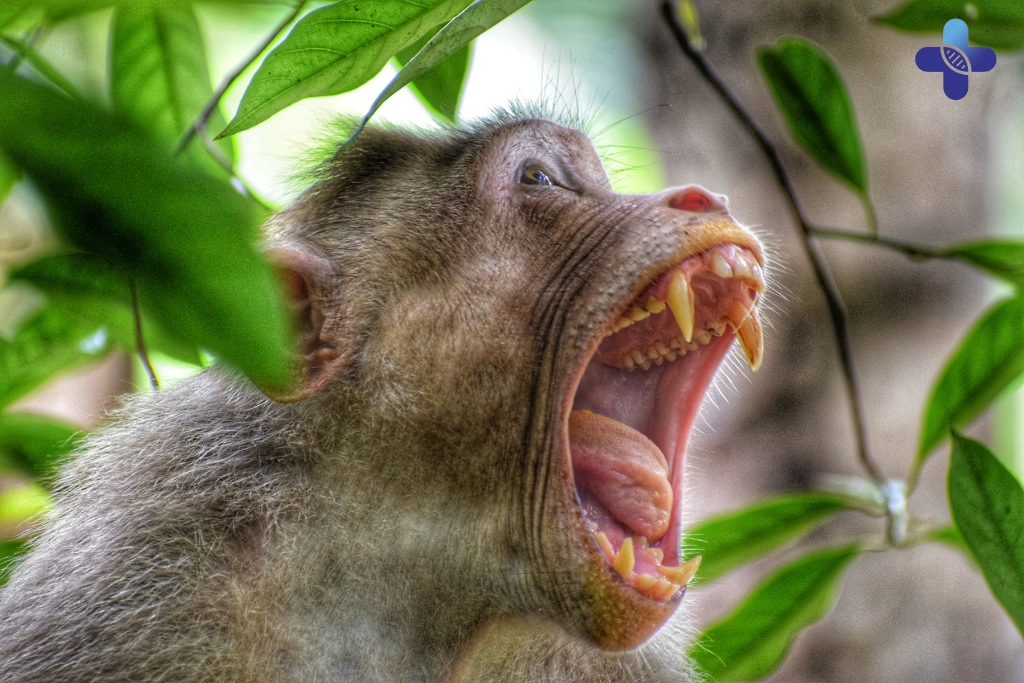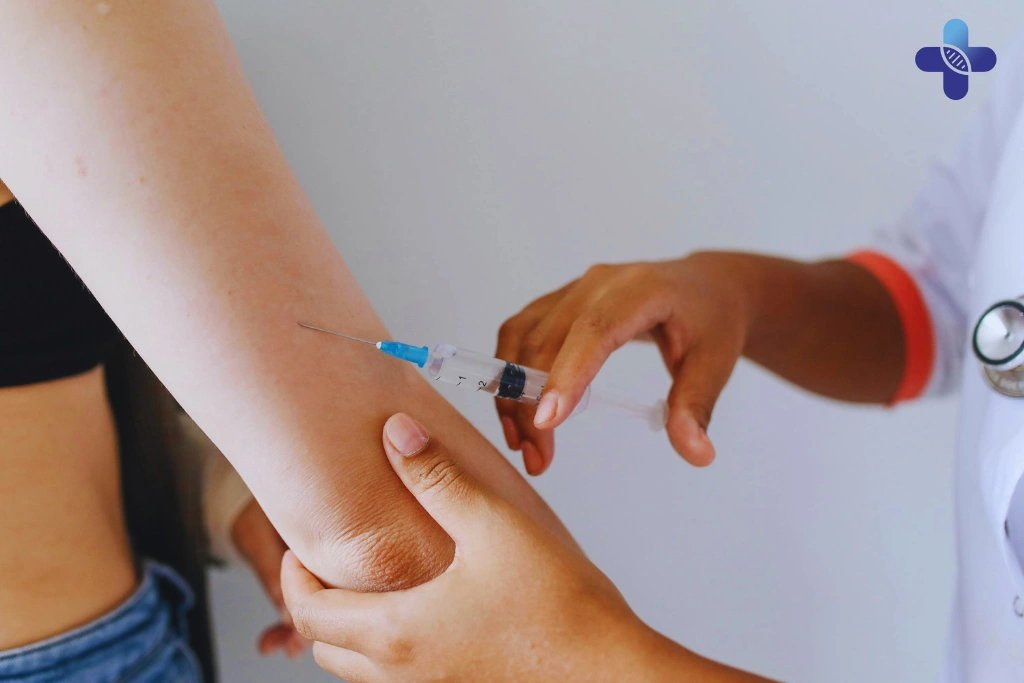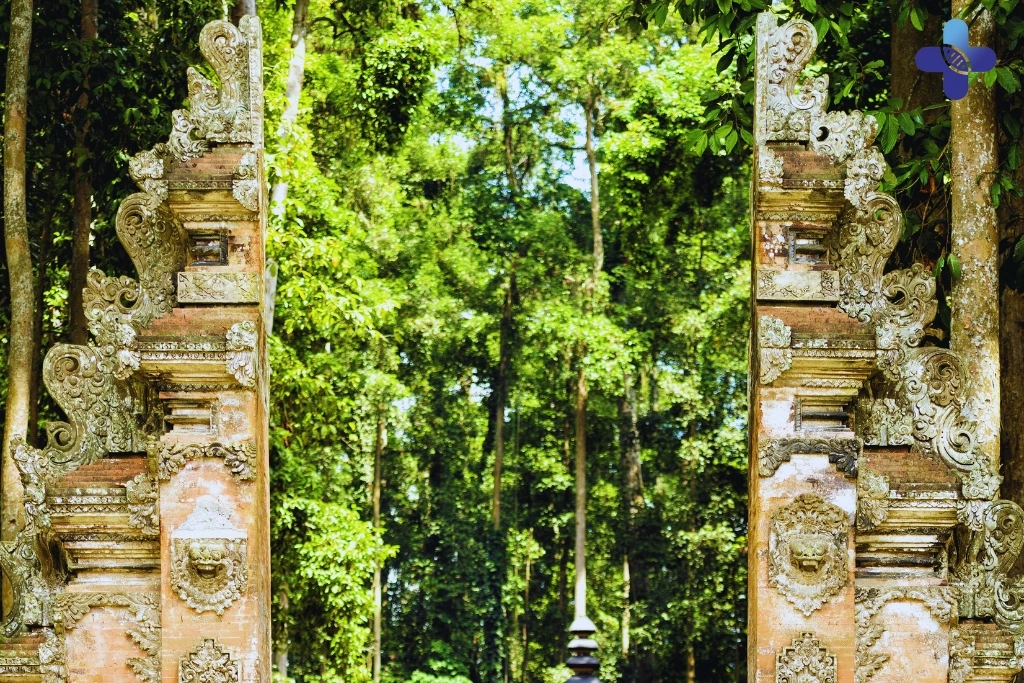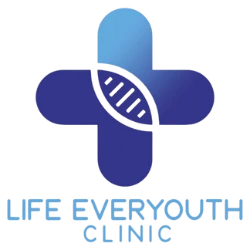If you’ve experienced a monkey bite in Bali, don’t wait or take chances—this is a medical emergency that requires immediate action. Whether you were bitten or scratched in Ubud Monkey Forest, Sangeh, or Uluwatu, the risk of rabies is real and serious. This guide provides clear, step-by-step instructions on what to do right now to protect your health. At Life Everyouth Bali, our trusted Medical Clinic in Bali is fully prepared to deliver immediate rabies vaccine treatment in line with WHO guidelines.
Bitten or Scratched by a Monkey in Bali? Follow These Steps NOW

WARNING:
ANY MONKEY BITE OR SCRATCH IN BALI MUST BE TREATED AS A POTENTIAL RABIES EXPOSURE. Do not delay or underestimate the risk. Follow this protocol immediately.
If you’ve been bitten or scratched by a monkey in Bali—even just a minor claw mark—you must treat it as a medical emergency. Whether it happened at Ubud Monkey Forest, Sangeh, or Uluwatu Temple, the risk of rabies is real and cannot be ignored. Many travelers assume that monkey scratches are harmless, but in reality, monkeys frequently lick their claws, and their saliva can carry the rabies virus. Any break in the skin is a possible entry point for infection.
This step-by-step emergency guide from Life Everyouth Bali, a trusted Medical Clinic in Bali, outlines exactly what you need to do. From immediate wound cleaning to getting the WHO-recommended Post-Exposure Prophylaxis (PEP), every second counts. Visit Life Everyouth or contact our Bali Medical Clinic now—we’re ready to provide the care you need, fast.
Step 1: The 15-Minute Wound Wash (Your Most Important Action)
If you’ve been bitten or scratched by a monkey in Bali, your very first step—before anything else—is to wash the wound thoroughly. Even the smallest injury can carry life-threatening viruses like rabies. At Life Everyouth Bali, we treat every monkey bite Bali incident as a high-risk exposure, and the clock starts ticking the moment the skin is broken. Immediate wound care can significantly lower your chances of infection.
Find the nearest clean water source, such as a public restroom, sink, or shower. Using plenty of soap and running water, scrub the wound continuously for 15 full minutes. Do not rush this step—set a timer if needed. This simple but powerful action helps flush out virus particles from the surface of the skin. Every Medical Clinic in Bali, including Life Everyouth, follows WHO guidelines that place wound irrigation as the number one priority after potential rabies exposure.
At our Bali Medical Clinic, we’ve seen too many cases where people skipped or shortened this crucial step—and regretted it later. Do not let panic or inconvenience stop you. Time is critical, and the 15-minute wound wash could be the most important medical action you take all day. If you’re unsure how to proceed or need help fast, Life Everyouth Bali is here to guide and support you through every stage of your recovery.
Step 2: Apply Antiseptic Immediately
Once the wound is washed for 15 full minutes, the next critical step is to apply an antiseptic solution. This reduces the risk of bacterial infections that can develop rapidly after a monkey bite or scratch. At Life Everyouth Bali, we recommend using povidone-iodine (such as Betadine) or another reliable antiseptic. This step is not a replacement for medical care—but it adds an important layer of protection while you make your way to a Medical Clinic in Bali.
After cleaning, gently pat the wound dry with a clean cloth or sterile tissue. Then, apply the antiseptic generously over and around the affected area. Avoid using alcohol or hydrogen peroxide as they can damage skin tissue and delay healing. At our Bali Medical Clinic, we treat numerous monkey bite Bali cases each month, and we know that early antiseptic use helps prevent complications like tetanus or cellulitis.
However, this is still only the beginning. Life Everyouth Bali urges all patients to treat antiseptic application as a temporary first aid step—not a cure. The real danger is rabies, and the only way to protect yourself is to begin the Post-Exposure Prophylaxis (PEP) vaccine series as soon as possible. Don’t rely on first aid alone—get to a trusted Medical Clinic in Bali immediately.
Step 3: Seek Professional Medical Help Without Delay
Even after properly cleaning the wound and applying antiseptic, you are not safe until you receive medical evaluation and start rabies treatment. Rabies is almost always fatal once symptoms appear, but it is 100% preventable with timely Post-Exposure Prophylaxis (PEP). At Life Everyouth Bali, we take every monkey bite Bali case seriously and follow WHO-standard protocols to keep you protected.
You must visit a Medical Clinic in Bali immediately—preferably within hours of the incident. At Life Everyouth, our medical team will assess your wound, determine the level of risk, and begin the rabies vaccine series. If needed, we can also provide Rabies Immunoglobulin (RIG) for deep or high-risk wounds. The sooner you begin treatment, the better your chances of complete protection.
Don’t delay this step. Monkey bites and scratches may look mild, but they carry serious health threats, especially in tropical regions like Bali. Our Bali Medical Clinic is equipped for urgent care, and Life Everyouth Bali offers fast, walk-in service for travelers. For peace of mind and life-saving action, contact us now and begin your rabies vaccine treatment today.
What to Expect During Your PEP Treatment

Once you arrive at Life Everyouth Bali—your trusted Medical Clinic in Bali—our medical team will immediately evaluate your condition and explain the PEP process. Most patients begin with a consultation and wound assessment, followed by the first dose of the rabies vaccine on the same day. Depending on the injury, we may also administer Rabies Immunoglobulin (RIG), especially if the bite or scratch is deep or near sensitive areas like the face or hands.
The rabies vaccine series consists of several injections given over a 2–4 week period. At Life Everyouth, we follow WHO-recommended schedules, and our Bali Medical Clinic keeps the vaccine in cold chain storage at all times. We also provide clear reminders and follow-ups so you won’t miss your next doses. Our goal is to keep the process smooth and stress-free for every traveler or expat in need.
If you’re still at your hotel or villa and not ready to travel, you don’t have to wait. Life Everyouth Bali offers 24/7 doctor on call services. One of our trained professionals can assess your wound onsite and help you begin treatment without delay. For monkey bite Bali cases, early intervention is everything—let our team help you act fast and stay protected.
Conclusion Monkey Bite in Bali? An Immediate Action Guide (2025)

Don’t let a single mistake ruin your health or your holiday. Monkey bites and scratches in Bali—no matter how small—must be treated as medical emergencies. Rabies is a deadly virus, and once symptoms begin, it is almost always fatal. That’s why every second counts. Whether you were bitten in Ubud Monkey Forest or scratched in Uluwatu, the safest response is immediate action and medical care.
Start by washing the wound, applying antiseptic, and then heading straight to Life Everyouth Bali. Our trusted Medical Clinic in Bali is fully equipped to deliver WHO-recommended rabies vaccine treatment and 24/7 care. We’ve helped countless travelers recover quickly and safely from monkey bite Bali incidents. Don’t wait—let Life Everyouth be your first call when your health is on the line.
Frequently Asked Questions (FAQ) Monkey Bite in Bali? An Immediate Action Guide (2025)
It was just a scratch, not a real bite. Do I still need a vaccine?
Yes, absolutely. Even a small scratch that breaks the skin can allow rabies virus to enter, especially since monkeys often lick their paws. At Life Everyouth Bali, we treat every monkey scratch with the same urgency as a bite. Our Bali Medical Clinic is ready to begin your rabies vaccine immediately.
The staff at the Monkey Forest cleaned my wound. Is that enough?
Basic first aid at the site is a helpful start, but not a substitute for full medical evaluation. You still need to go to a Medical Clinic in Bali to receive proper PEP (Post-Exposure Prophylaxis). At Life Everyouth, we offer WHO-standard care for all monkey bite Bali cases. Don’t rely on on-site cleaning alone.
I heard monkeys in Ubud don’t carry rabies. Is this true?
That’s a common and dangerous myth. There is no guarantee that any monkey is rabies-free, and rabies surveillance in wild animal populations can be limited. Life Everyouth Bali advises all patients to treat any monkey exposure seriously. Our Medical Clinic Bali follows global protocols: assume risk and act immediately.
I had the pre-exposure rabies vaccine (PrEP). Do I still need care?
Yes. You still need to wash the wound, seek professional care, and receive two booster doses of the rabies vaccine. The good news is that you won’t need Rabies Immunoglobulin (RIG). Visit Life Everyouth Bali, a trusted Medical Clinic in Bali, to get started.
Can monkey bites cause other infections besides rabies?
Yes. Monkey bites and scratches can lead to bacterial infections like tetanus, cellulitis, or sepsis if left untreated. Life Everyouth Bali always performs a full wound assessment and provides additional protection when needed. Our Bali Medical Clinic is equipped to treat both viral and bacterial risks.
How can I keep my kids safe around monkeys?
Keep children close, and never allow them to carry food, drinks, or shiny objects near monkeys. Teach them not to reach out or get too close. Life Everyouth Bali encourages parents to stay alert, especially in areas like Ubud Monkey Forest or Uluwatu Temple. Prevention is better than emergency treatment at a Medical Clinic in Bali.
The bite isn’t deep. Is it still dangerous?
Yes. Rabies can be transmitted even through superficial wounds, as long as the skin is broken. Life Everyouth Bali treats all monkey bite Bali cases with urgency, regardless of how deep they appear. Visit our Medical Clinic in Bali immediately for evaluation.
Why are monkeys at Uluwatu so aggressive?
Monkeys at tourist sites like Uluwatu Temple have learned to associate people with food, making them bolder. They often steal bags, glasses, or phones in search of snacks or trade. Life Everyouth Bali sees many monkey-related injuries from this area. Always stay alert and avoid carrying tempting items.
What if a monkey steals my phone or glasses?
Do not try to fight or grab the monkey—it’s not worth the injury. Monkeys can become aggressive if they feel threatened. At Life Everyouth Bali, we’ve treated numerous injuries from such encounters. Let go of the item and prioritize your safety over belongings.
How can I tell if a monkey is about to get aggressive?
Warning signs include intense staring, baring of teeth (which may look like smiling), and loud chattering or lunging movements. If you notice these behaviors, avoid eye contact and back away slowly. At Life Everyouth Bali, we advise visitors to treat these cues seriously. Staying calm can prevent the need for urgent care at a Medical Clinic in Bali.
